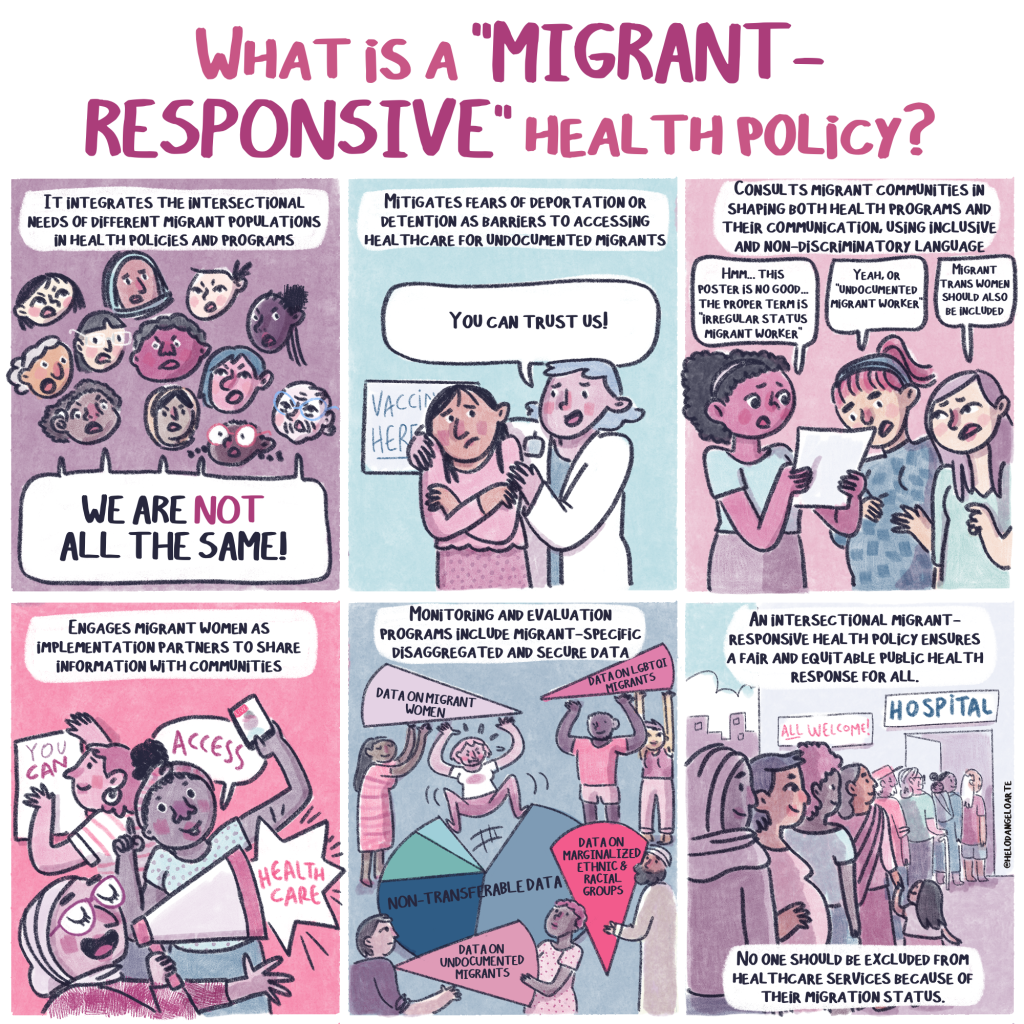Multimedia > Cartoons >
Migrant-Responsive Health Policy
16 Mar 2024
The #Fem4PeoplesVaccine and Women in Migration Network (WIMN) continue to call for a migrant-responsive health policy to ensure equitable access to healthcare. A migrant-responsive health policy recognizes the multiple oppressions migrants face due to gender, race, and immigration status to ensure equitable access to healthcare. Governments must acknowledge and mitigate barriers to healthcare for undocumented migrants such as fears of deportation or detention. “Firewalls” that safeguard against the sharing of data between medical staff and law enforcement should be instituted. States must engage migrant women as implementation partners who play a pivotal role in shaping healthcare policy. Migrant women, as trusted members of their community, should also be consulted in drafting healthcare messages that use language that is inclusive and non-discriminatory. In addition, monitoring and evaluation programs must ethically collect migrant-specific disaggregated data about healthcare access of women, marginalized ethnic and racial groups, LGBTQI migrants, and undocumented migrants. Paramount and parallel to this is the protection of this data. Migrant information data must be collected and stored in a way that protects the identities of migrants. Data must not be shared with law enforcement for surveillance or expulsion based on migration status. While high-level discussions take place to negotiate a #pandemictreaty focusing on equity at the World Health Organization, a fair, equal, and effective pandemic response requires an intersectional migrant-responsive health policy. This must be done in parallel with the government suspending intellectual property rights on lifesaving supplies in times of health crisis. Women in Migration Network and #Fem4PeoplesVaccine are calling for a new social contract to avert widening inequalities as a result of health crises. In this new social contract, governments must provide universal public healthcare, better staffing, stronger health stockpiles and supply chains, and patent suspension in crises. Read more about how a new social contract that prioritizes people over profit is essential to a fair and equal pandemic response.







